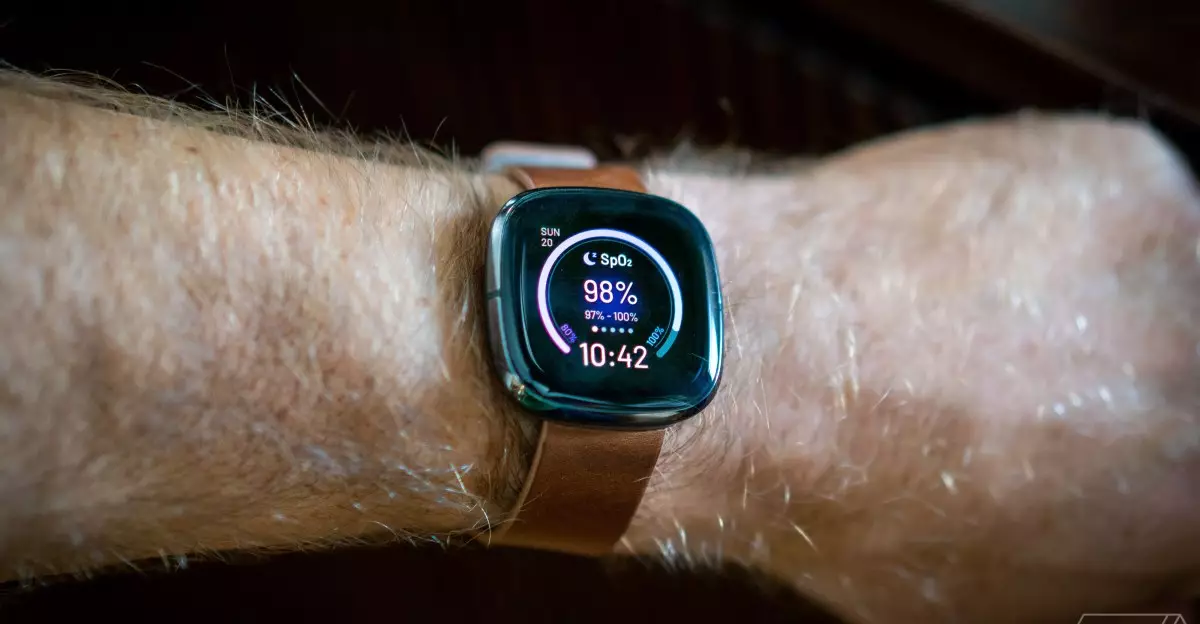Fitbit’s Versa 3 and Sense smartwatches have recently faced tumultuous feedback from users following a mandatory firmware update, which sought to aggravate an ongoing battery issue. Instead of resolving the concerns, the update appears to have exacerbated the dilemma, leaving many consumers frustrated and questioning their loyalty to the Fitbit brand.
The update introduced by Google—who acquired Fitbit—was ostensibly designed to address overheating issues linked to the smartwatches’ batteries. This intervention came as part of a larger initiative to protect users from potential hazards associated with battery failures. According to Google, the update was implemented to *“reduce the risk of battery overheating and reduce battery capacity.”* While on the surface, this sounds practical and responsible, the implications of such a change have left countless users dissatisfied and struggling with shortened battery life.
Just weeks after the update was pushed through, complaints flooded forums and social media as owners of the Versa 3 and Sense reported a substantial decline in battery performance. Devices that were once dependable for multiple days of usage suddenly required charging within a single day, with some users going as far as deeming their devices now *“useless.”*
In addition to the drastic reduction in battery life, users were offered a $50 credit as compensation, which many found lacking in adequacy. For a premium smartwatch, frequently charging every 24 hours rather than enjoying a multi-day lifespan is a disappointing predicament. Consumers who gravitated towards Fitbit for their reputed longevity now feel deceived.
The update’s official notice did mention that users might have to recharge their devices *“more frequently,”* yet expecting users to adapt to daily charging from a once robust battery life is a significant downgrade. Major tech firms are often faced with difficult decisions regarding recalls or software fixes, yet how they navigate consumer satisfaction during such times can significantly impact brand loyalty.
The recurring theme of battery-related complaints surrounding Fitbit devices cannot be ignored. A recent lawsuit, which cited overheating concerns regarding the Ionic model, illustrates a troubling history that raises red flags for Versa and Sense owners. This history is compounded by the fact that Google itself has undergone scrutiny for limiting performance in relation to battery capacity on its devices, further bending the trust consumers have long held.
Consumers are increasingly aware that device performance often takes a backseat to revenue goals, whereby a quick firmware update may alleviate concerns while offering little more than temporary fixes. With burn incidents being reported by several users of various Fitbit models, ensuring user safety seems an obligatory priority, albeit at the cost of functionality.
As complaints linger and users unite over shared experiences, the narrative shifts toward the long-term implications on Fitbit’s standing in the smartwatch market. Negative consumer feedback, like that witnessed on platforms such as Reddit, often becomes a breeding ground for distrust. Over time, this can escalate venomously, resulting in widespread backlash against a brand perceived to miss the mark in user safety and device reliability.
Loyal Fitbit enthusiasts now reflect on their reliance on products that were once deemed cutting-edge, realizing they might have been unwitting scapegoats in a larger corporate strategy. This situation calls into question how such tech giants prioritize product quality against safety in an ever-competitive market.
In light of these recent events, a call for accountability within Fitbit and Google is imperative. While the intent behind the firmware update was commendable, the execution has been flawed, leading to a detrimental user experience. As the dust settles, consumers deserve comprehensive clarifications and solutions that extend beyond mere credits and apologies. Continuing to overlook users’ grievances may very well result in a tarnished brand image, compelling loyal consumers to rethink their affiliations with Fitbit.

